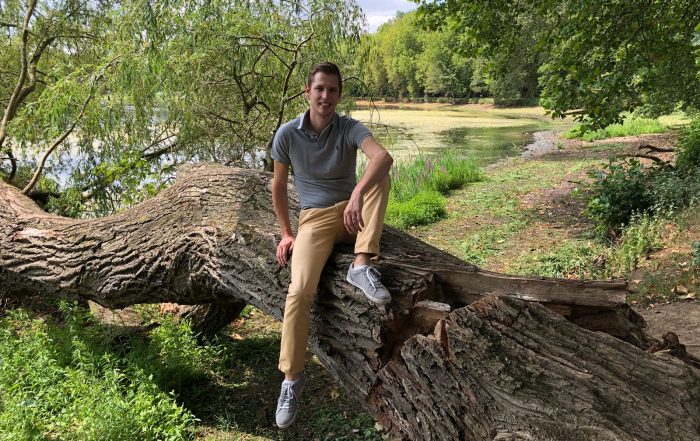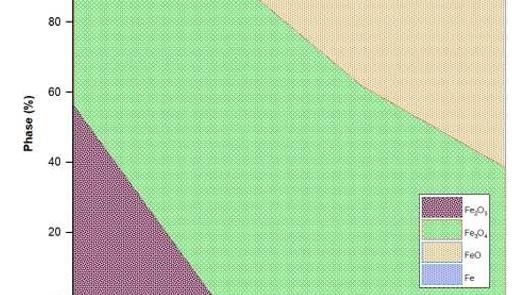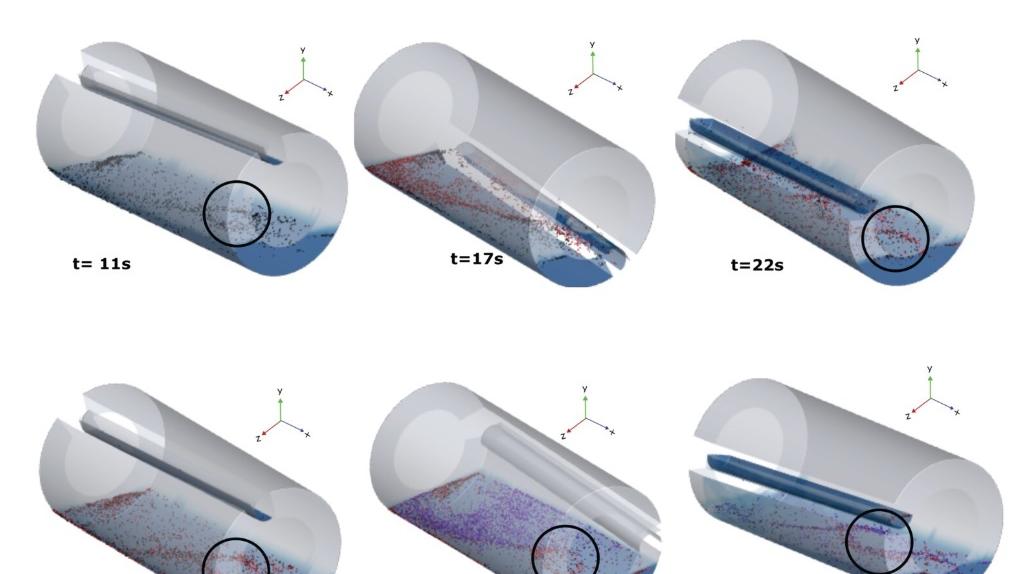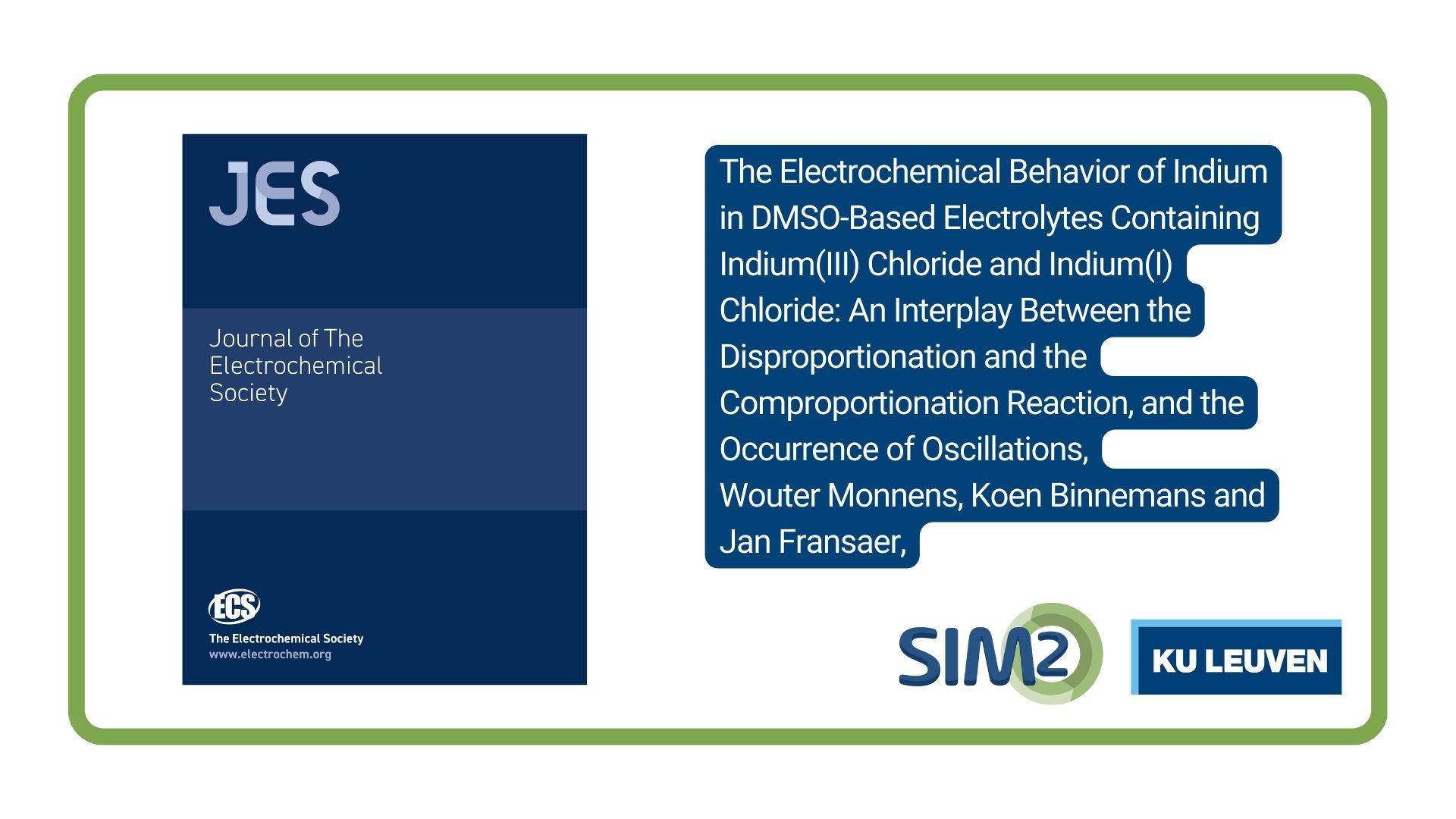Steff Van Loy is a PhD student at the Department of Chemical Engineering at KU Leuven. His work targets the implementation of mechanochemical methods for recycling of critical metals from industrial waste streams. In the following SIM² KU Leuven interview you can get to know more about Steff Van Loy’s work. (Leuven, 3/8/2018)
Why did you choose to work in Belgium?
Since I lived and studied my whole life in Belgium working abroad could be a great lesson of life, but can also be a challenging experience. My wife and I had plans to get married and start a family, therefore the obvious choice was to stay in Belgium. Through my connections with the Department of Chemistry, I had the opportunity to start a PhD within the Department of Chemical Engineering.
What are you working on?
My work focuses on the use of mechanochemistry, an often forgotten branch of chemistry, for recycling of critical metals (rare-earth elements and tantalum) from lamp phosphors, magnets and electrolytic capacitors. Within this research chemical phenomena are investigated, such as chemical reactions (e.g. complexation reactions) and changes in crystalline structures, induced by mechanical actions (e.g. high energy milling). By inducing chemical and physico-chemical changes the recovery of critical metals, by hydro- or solvometallurgical leaching, can be improved using less chemicals and producing less waste. The overall goal is to develop new and innovative recycling processes, which are faster, safer and more energy-efficient [see Steff Van Loy’s recent paper in Journal of Cleaner Production here].
What attracts you in the research project you are working on?
Recycling is a trendy topic, especially in Europe due to the independence of critical metal supply from other continents. The waste and recycling sector is essential with high industrial relevance for a sustainable Europe. By developing these cleaner and more energy-efficient processes, we can contribute a small piece to the complete puzzle for a transition to a circular economy. Secondly, despite mechanochemical reactions being known for centuries, the process of physico-chemical transformations under the influence of mechanical actions is still a mystery for many reactions. Diving into the mystery, unraveling the complexity how simple grinding can induce (complex) chemical reactions that exclusively occur upon grinding, is something which intrigues me every day!
What do you like the most about doing research?
Sometimes, experiments don’t go as well as planned or give you unexpected results. And that’s okay! In these cases, you’re given the opportunity to question your process, make changes, and to think beyond. And then finally one day you get that missing piece. There is nothing cooler than challenging yourself and knowing that you are contributing to the discovery or development of something that can make a difference in people’s lives or change the world! Additionally, working in research gives you the opportunity to work alongside incredible faculty mentors and to work with a lab group that may serve as guides, counselors, and as friends outside of the lab!
When are you the happiest?
There are countless moments of happiness scattered through my life! It may be big things which happened during my PhD; buying your own house, getting married or becoming father. But it can also be small things; my son who gives me a big hug after being gone for a few days, your wife who comforts you after a miserable day or some fun moments at lunchtime with your colleagues.
How do you recharge?
Get away on mini-vacations for a day, a weekend or even a full week. During these periods I like to take some time off with the family. Having a fun picnic in the park, spend some time at the Belgian seaside or visiting one of the zoos. During summer time, I always try experiencing some new (extreme) sports with friends. Skydiving, sky-gliding, wakeboarding and air games are just a few of the sports we could erase from our bucket list last year.
Bio Steff Van Loy
 Steff Van Loy was born in Turnhout (Belgium) in 1989. He started his bachelor in the science of chemistry in 2007 at KU Leuven, followed by a bachelor in industrial sciences in 2010 at Group T. He obtained his master’s degree in industrial sciences with a specialization in chemistry in 2014. He was awarded the KVCV prize for his master thesis at Janssen Pharmaceutica (Johnson & Johnson) on the development of mass spectrometry based methods for the detection and quantification of protein deamidation. Currently, he is working on a PhD thesis on the implementation of mechanochemical methods for recycling of critical metals from industrial waste streams. Central to his research is the question of how mechanochemistry can contribute to the waste and recycling industry for the development of safer, faster and more energy-efficient processes.
Steff Van Loy was born in Turnhout (Belgium) in 1989. He started his bachelor in the science of chemistry in 2007 at KU Leuven, followed by a bachelor in industrial sciences in 2010 at Group T. He obtained his master’s degree in industrial sciences with a specialization in chemistry in 2014. He was awarded the KVCV prize for his master thesis at Janssen Pharmaceutica (Johnson & Johnson) on the development of mass spectrometry based methods for the detection and quantification of protein deamidation. Currently, he is working on a PhD thesis on the implementation of mechanochemical methods for recycling of critical metals from industrial waste streams. Central to his research is the question of how mechanochemistry can contribute to the waste and recycling industry for the development of safer, faster and more energy-efficient processes.
Want to know more about other SIM² KU Leuven researchers?
You can read multiple interviews here.





